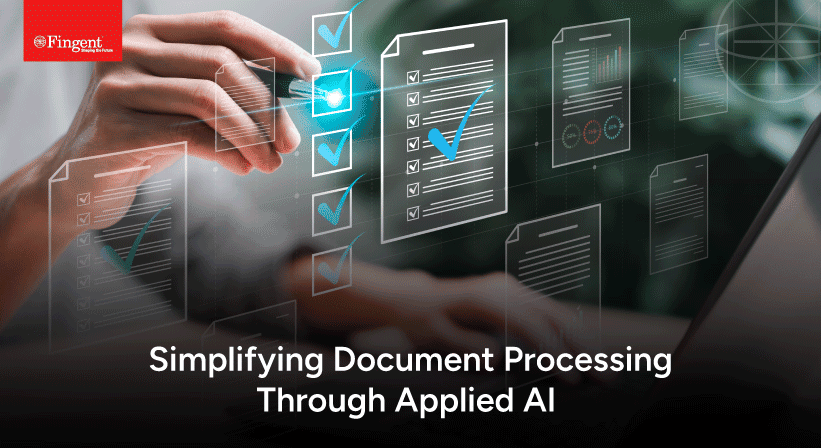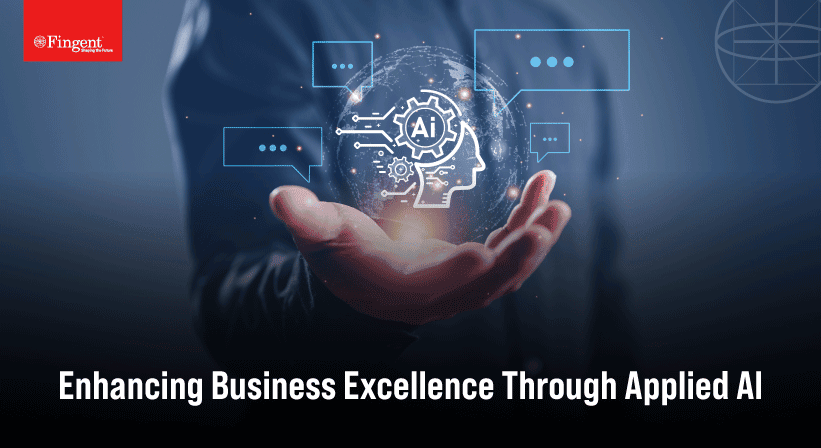How Artificial Intelligence Can Help Create Transforming Mobile Apps!
Today we live in a world where machines possess an extraordinary ability to learn, reason, and make decisions, much like the human mind. This remarkable realm of technology known as Artificial Intelligence is not merely a product of science fiction or futuristic imagination. It has become an awe-inspiring reality that is transforming the landscape of countless industries.
But that’s just the tip of the AI iceberg.
In mobile development, AI can transform your customer’s device into a personal shopping assistant, a language guru, or a creative photographer all in the blink of an eye.
The integration of AI in mobile app development doesn’t stop there.
It unlocks a realm of possibilities for your customers, from personalized virtual assistants that organize their life, to fitness apps that act as their personal trainers, to healthcare apps that monitor their well-being.
But how do we understand the concept of AI in mobile apps?
Unraveling Artificial Intelligence in Mobile Apps
Simply put, AI is like the brain behind the scenes, making your apps smarter and more interactive.
One of AI’s superpowers is Machine Learning (ML). It’s like a super adaptable brain that learns from data and experiences. Machine learning algorithms analyze massive amounts of information to get better at tasks. They can recognize patterns, make predictions, and even understand your preferences.
Another clever component is Natural Language Processing (NLP). It’s like an AI language translator that allows you can talk to your app, ask questions, and it magically understands and responds. NLP allows your AI sidekick to grasp the meaning behind your words, making conversations with your app feel more human-like.
How does it help?
Read more: Understanding NLP: Will It Reign Supreme In Near Future?

From Mundane to Marvelous – Benefits of AI In Mobile Apps
Weaving the powers of AI into your mobile apps can enhance user experience. How? Like a brilliant and intuitive companion, AI-powered mobile apps can provide personalized recommendations. AI algorithms analyze user behavior, learn their tastes, and curate a world of suggestions.
Plus, it learns and grows with them. The more your customers use your apps, the smarter those apps become, tailoring their suggestions to your customer’s ever-changing whims and fancies and predicting their move, and effortlessly serving up what they need.
Read more: https://www.fingent.com/blog/is-ai-powered-mobile-app-what-you-need-for-your-business-now/
Key Applications of AI In Mobile Apps
AI brings a layer of intelligence to your apps that takes them to the next level. Here are some key applications that this has made possible:
1. Voice Assistants and Natural Language Processing
40% of mobile users use voice search at least once a day. – Comptia.
Natural Language Processing (NLP) enables the integration of voice assistants like Siri, Google Assistant, and Alexa into mobile apps. No matter how they phrase it, NLP enables your app to decipher the meaning and context of their spoken words.
It is capable of unraveling the intricacies of slang, deciphering accents, and even understanding complex sentences with multiple layers of meaning. It’s like having a language expert at your beck and call. But it doesn’t end there. NLP allows voice assistants to learn from every interaction, becoming more intelligent over time.
2. Personalized Recommendations
AI algorithms can analyze user data to provide personalized recommendations in mobile apps by utilizing machine learning techniques:
- Data Collection: Mobile apps collect user data through various means, such as user registrations, app usage tracking, explicit ratings, and implicit signals like clicks, views, and interactions.
- User Profiling: Such data is used to create user profiles that capture individual preferences, interests, and behaviors.
- Pattern Recognition: AI algorithms can identify similarities based on factors like item attributes, past behavior, and user demographics.
- Recommendation Generation: Based on the identified patterns, the algorithms generate personalized recommendations. For example, in a music app, the algorithm might suggest songs or artists similar to the user’s previous listening habits or recommend popular tracks among users with similar tastes.
The benefits of personalized recommendations for user engagement and satisfaction are significant:
- Enhanced User Experience: Users are more likely to discover new content they enjoy and spend more time using the app.
- Improved Discovery: Personalized recommendations help users explore new music genres, discover new movies or shows, or find products that suit their tastes, leading to greater satisfaction.
- Time and Effort Saving: With personalized recommendations, users can find relevant content more quickly and easily.
- Increased User Retention: When users receive preferred recommendations, they are more likely to remain engaged with the app.
- Business Benefits: Personalized recommendations result in improved conversion rates and increased customer loyalty.
3. Image and Video Recognition Tasks
AI plays a crucial role in mobile apps across industries, including e-commerce, social media, entertainment, gaming, and more. For example:
- Facial Recognition: This technology is widely used in mobile apps for various purposes, such as authentication, photo tagging, and personalization.
- Object Detection: With AI algorithms, mobile apps leverage object detection for a range of purposes, such as visual search and safety features.
- Augmented Reality (AR) Experiences: AI algorithms are employed in mobile apps to enable applications like virtual try-on for shopping, gaming, and navigation.
Read Case Study: How Fingent helped build a unique mixed reality application for a leading university that enables users to identify people using facial recognition!
4. Intelligent Chatbots
The integration of AI-powered chatbots in mobile apps revolutionizes customer support and interaction by enabling efficient and automated communication with users. Using AI algorithms, chatbots recognize the intent behind user queries and quickly search and retrieve relevant information to address user queries effectively.
Success Stories
Mobile apps have been able to enhance user satisfaction, drive revenue growth, and achieve operational efficiency, resulting in their success in the mobile app market. Here are some examples:
1. Instagram
Instagram, one of the “big three” social media platforms, utilizes AI algorithms to provide personalized content recommendations in the Explore tab. This greatly improves user engagement by helping users discover relevant posts and accounts. AI is also used for content moderation, and identifying and filtering out inappropriate or spammy content, thus creating a safer user environment.
Impact: AI integration in Instagram has contributed to increased user engagement by facilitating content discovery and improving user safety by detecting and removing harmful content. Today it is 4th most used social media platform and 5th most visited website.
2. Uber
Uber, a ride-hailing platform, employs AI algorithms to optimize its dynamic pricing system. Machine learning models analyze supply and demand patterns, traffic conditions, and historical data to determine surge pricing, ensuring efficient allocation of drivers and meeting high-demand periods.
Impact: AI integration in Uber enables efficient pricing strategies, ensuring the availability of drivers during peak demand and generating increased revenue for the company.
In 2022, Uber experienced substantial growth with a revenue of $31.8 billion, marking an 82% increase from the previous year. Furthermore, the number of completed trips also saw an increase, with Uber drivers recording 7.6 billion trips, exceeding the previous peak of 6.9 billion trips in 2019.
3. Amazon
Amazon, a leading e-commerce platform, extensively uses AI across its mobile app for personalized product recommendations, dynamic pricing, inventory management, and fraud detection.
Impact: AI integration in the Amazon app has led to increased user engagement by providing relevant product suggestions, improved customer satisfaction through personalized experiences, optimized pricing strategies, and enhanced operational efficiency.
In Amazon, it was observed that there is a 42% likelihood of a customer proceeding to a prospective product purchase. On the other hand, Walmart and Etsy have recorded figures of 16% and 13% respectively.
Amazon’s Alexa has taken over the world’s smart speaker industry, by securing an impressive 26.4% market share.
Emerging Trends in AI For Mobile Apps
Emerging trends in AI for mobile apps are shaping the future of mobile app development. Here are two key trends:
1. Edge Computing: Edge computing involves processing data locally on the device or in nearby edge servers, reducing the reliance on cloud computing. This trend enables AI-powered mobile apps to perform complex tasks and analysis directly on the device, leading to faster response times, enhanced privacy, and reduced dependency on internet connectivity.
Implications: The increasing adoption of edge computing enables apps to respond quickly to user inputs, process sensor data in real-time, and provide immediate feedback, leading to faster and more seamless experiences.
2. Federated Learning: Federated learning allows AI models to be trained collaboratively on decentralized data from multiple devices without transferring sensitive user data to the cloud. Each device performs local model training, and only model updates are exchanged, ensuring privacy and data security.
Implications: Future advancements will likely include greater transparency, explainability, and fairness in AI algorithms to ensure user trust and mitigate potential biases or discriminatory outcomes.
Personalize, Engage, and Future Proof with AI
In this era of technological revolution, artificial intelligence stands as a beacon of innovation and possibility. AI integration in mobile apps offers compelling benefits such as personalized experiences, improved user engagement, increased efficiency, advanced functionalities, data-driven decision-making, competitive advantage, and future-proofing.
These reasons make AI integration a strategic choice for app developers looking to deliver exceptional user experiences and drive the success of their mobile app projects.
By partnering with Fingent, you can leverage our expertise in AI and mobile app development to unlock the transformative potential of AI in your app projects. From custom travel apps to apps using AI enabled chatbots and virtual assistants, Fingent has created unique solutions for clients across the globe. Our commitment to delivering tailored solutions, adherence to data privacy, and end-to-end services make us an ideal choice for AI mobile app development.
Contact us, the leading custom software development company, and let’s explore the possibilities together.
Stay up to date on what's new

Recommended Posts

08 May 2024 Financial Services B2B
AI in Financial Services: Use Cases and Applications
As Dan Schulman, the CEO of PayPal once said, “We're not trying to reinvent the wheel; we're trying to perfect it.” Achieving perfection is no easy process. It is not……

24 Apr 2024 B2B
A Leader’s Blueprint for AI Success
"Leaders, embrace AI! Make it your superpower!" - Robert Barber, Leadership Development Trainer and Executive Coach. How Are Businesses Using AI? The verdict is crystal clear—leaders today must embrace AI to……

18 Apr 2024 B2B
Applied AI For Document Processing
"It's becoming increasingly clear that AI is the future, and almost everything else is a sideshow." - World-renowned computer scientist Geoff Hinton AI has taken over almost every aspect of……

21 Feb 2024 B2B
Stepping The AI Revolution with Applied AI
“I am telling you, the world’s first ‘trillionaires’ are going to come from somebody who masters AI and all its derivatives and applies it in ways we never thought of.”……
Featured Blogs
Stay up to date on
what's new
























































